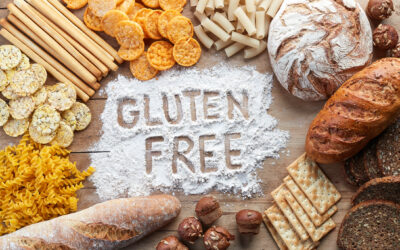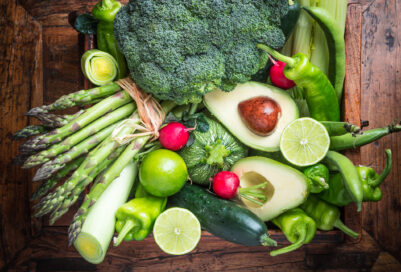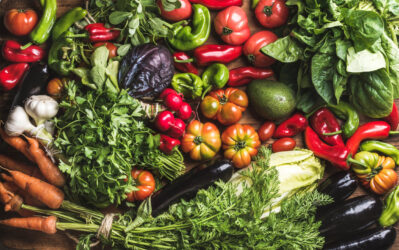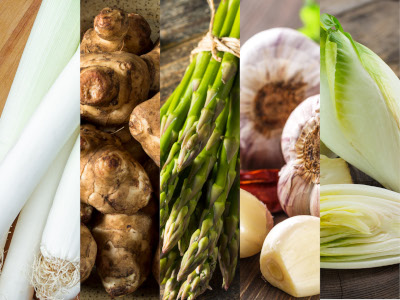Real Foods Blog
A guide to managing coeliac disease
Coeliac disease is a serious autoimmune condition which affects 1 in 100 people in the UK. When individuals with coeliac disease consume gluten (a protein found in wheat, barley, and rye) their immune system launches an attack on its own tissues. This leads to damage to the small intestine and, as a result, nutrients from food cannot be properly absorbed.
Batch cooking 101: A beginner’s guide to quick, easy meals
Batch cooking has grown in popularity in recent years, particularly among busy people who want to eat healthily but are short on time. In fact, according to a survey by the Agriculture and Horticulture Development Board (AHDB) 63% of adults are regular batch-cookers. The survey respondents stated that it enables them to make savings of around £60 per month on food costs. So, batch cooking helps to save both time and money! And, what’s more, it can help to kickstart a healthier way of living. Let’s take a closer look at some of the benefits behind batch cooking and how to get started.
Seasonal eating for spring: a guide
Seasonal eating is beneficial for our health as well as the health of the planet. Fresh produce that has recently been harvested, and hasn’t had to travel for thousands of miles, is typically fresher, tastier and much more nutritionally dense.
Although fruits do not begin to ripen until the summer in the UK, spring brings with it an abundance of fresh vegetables. By integrating these fresh veggies into daily meals, we are embracing the natural rhythm of the seasons whilst supporting local agriculture and nourishing our bodies.
Free-from Easter recipes for a stress-free celebration
Easter is a joyous time of year which coincides with Spring, heralding a time of new life and new beginnings. This Christian holiday is celebrated in many ways around the world, and traditional foods are very much part of the proceedings. Easter eggs, hot cross buns and Simnel cake are just some of the goodies that are enjoyed by all. The good news for anyone following a free-from diet is that traditional Easter recipes can easily be adapted to cater for various dietary restrictions. Whether it’s vegan, gluten-free, dairy-free or nut-free, you can prepare a delectable Easter feast without compromising on flavour or tradition.
Vegan food ideas to celebrate Chinese New Year
Chinese New Year is a time of great celebration when families gather to enjoy delicious food together. From spring rolls and dumplings to longevity noodles, food is a key part of the festivities and various dishes hold special significance. As we usher in the Year of the Dragon in 2024, Real Foods explores some vibrant vegan recipe ideas that honour the rich culinary traditions of Chinese New Year.
Christmas baking: festive inspiration
As the song goes, it’s the most wonderful time of the year! Christmas is a joyous celebration when we exchange gifts and enjoy good food with loved ones. Preparing a festive feast can take up a lot of time and energy though. That’s why it can really help to get a head start on your Christmas baking so read on and discover more about some of the well known seasonal staples and more festive food ideas.
What are ultra-processed foods?
Ultra-processed foods have recently come under the spotlight due to their links with heart disease, high blood pressure, heart attacks and stroke. But what exactly are ultra-processed foods and why are they so bad for us?
Is it really better to buy organic?
Organic foods and products are becoming increasingly popular with shoppers for a variety of reasons. They are viewed as better for our health, better for the planet and more considerate of animals and wildlife. In fact, the UK’s organic market is now worth an astonishing £3.1 billion. Each day in the UK, shoppers spend almost £8.5 million on organic products, ranging from fresh fruit and veg to
organic drinks and health and beauty items.
However, some argue that organic foods are too expensive, particularly for households on a budget. And the extra effort required to source them can be quite time consuming. So, is it really worth buying organic foods and products? Let’s take a closer look at the issue.
Inulin: health benefits and dietary sources
Inulin is a form of soluble fibre which is found naturally in over 36,000 species of plants. It is a prebiotic, which means that it feeds our good gut bacteria. Inulin cannot be digested by the stomach and small intestine. Instead, it is fermented in the large intestine where it’s converted into short-chain fatty acids (SCFA). SCFA have many health benefits, from supporting gut health to reducing the risk of type 2 diabetes and heart disease.
The good gut health guide
Good gut health is fundamental to our overall health and wellbeing. But, according to research, nearly half (43 per cent) of the UK population experience some form of digestive discomfort. This can range from abdominal pain or discomfort to diarrhoea, bloating, flatulence and constipation.
Symptoms such as these might indicate that the gut isn’t functioning as well as it could. Also, poor gut health can affect other areas of our health from immunity to hormone levels and metabolism. Let’s take a look at why gut health is so vitally important, and what we can do to support the gut through diet and lifestyle changes.

















